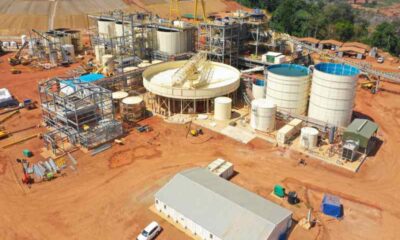VenturesNow
Uganda considers nuclear energy to meet increased electricity demand

VenturesNow
IMF mission concludes 4th loan program assessment in Egypt
VenturesNow
Kenya seeks $750m from World Bank, obtains $200m from AfDB— Official
-

 Metro1 day ago
Metro1 day agoNigerian Senate confirms influx of terrorists from Mali, Burkina Faso into the country
-

 Musings From Abroad1 day ago
Musings From Abroad1 day agoFinnish court imprisons Nigeria’s Simon Ekpa for aiding terrorism
-

 Metro1 day ago
Metro1 day agoZambia: APP leader lampoons PF over pledge to reverse forfeited properties
-

 Sports1 day ago
Sports1 day agoGhanaian winger Fatawu out for season with ACL injury






























